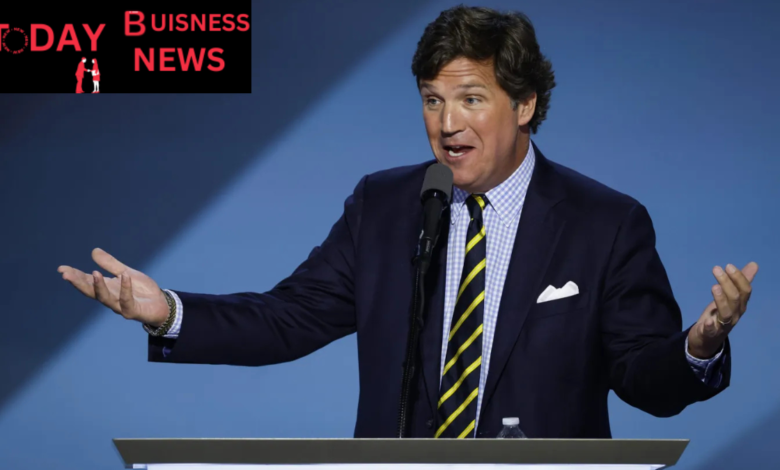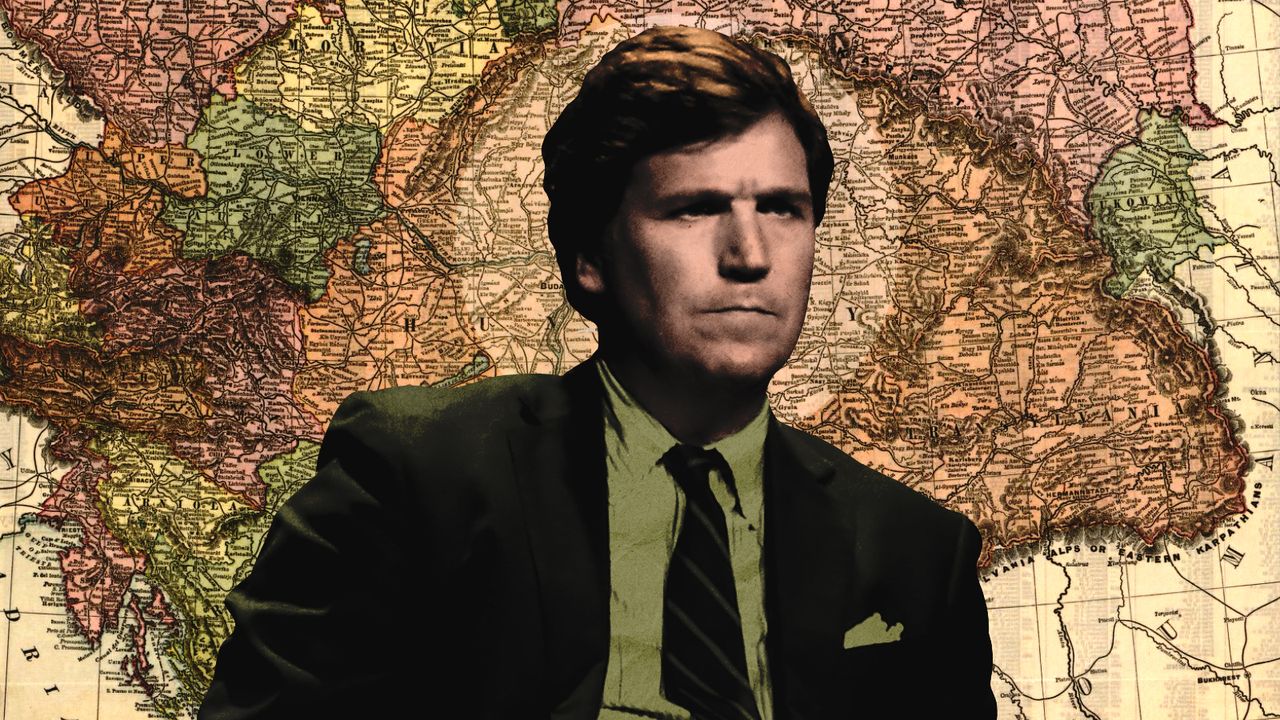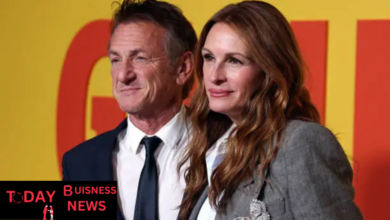Alps Tucker Carlson: Exploring His Influence and Controversies

Introduction
Tucker Carlson is one of the most polarizing figures in modern media. As a former host on Fox News and a significant voice in conservative politics, his opinions have shaped discussions across the political spectrum. The phrase “Alps Tucker Carlson” has gained attention, but what does it mean? Whether it refers to a metaphorical high point in his career or a trending term, this article will explore his influence, controversies, and what lies ahead for him.
Tucker Carlson: Background and Rise to Fame

Early Life and Education
Tucker Carlson was born on May 16, 1969, in San Francisco, California. Raised in an upper-middle-class family, he had early exposure to journalism, as his father, Richard Warner Carlson, was a media executive. Tucker attended St. George’s School in Rhode Island before enrolling at Trinity College in Hartford, Connecticut, where he earned a degree in history. While his academic career was not particularly distinguished, his passion for politics and media was evident.
After graduation, Carlson initially pursued journalism, writing for several conservative publications. His early work at The Weekly Standard and Policy Review helped him establish credibility in political commentary. His articulate and often provocative style quickly set him apart from other young journalists.
Career in Journalism and Media
Carlson’s television career began in the late 1990s, and he quickly made a name for himself. He worked as a correspondent for CNN, co-hosting Crossfire, where his heated debates with political opponents garnered attention. His signature bowtie and sharp rhetoric became defining traits.
Following CNN, he moved to MSNBC, where he hosted Tucker, but the show failed to gain traction. In 2009, he co-founded The Daily Caller, a conservative news website, further solidifying his influence in right-wing media. However, it was his move to Fox News in 2016 that catapulted him to national prominence. As the host of Tucker Carlson Tonight, he became a leading voice in conservative media, addressing controversial topics and attracting millions of viewers nightly.
Influence of Tucker Carlson in Media and Politics
His Impact on Conservative Media
Carlson’s influence on conservative media is undeniable. He positioned himself as an alternative to mainstream journalism, often challenging narratives presented by traditional media outlets. His show resonated with audiences who felt alienated by what they saw as liberal bias in major networks.
His discussions on topics like immigration, political correctness, and nationalism struck a chord with conservative viewers. By blending news analysis with opinionated commentary, Carlson created a unique style that differentiated him from other hosts. His ability to simplify complex issues into digestible soundbites made him a powerful media figure.
Relationship with Political Figures
Carlson has maintained close ties with key political figures, particularly within the Republican Party. His interviews with former President Donald Trump and other high-profile conservatives solidified his reputation as a trusted voice within right-wing circles. However, he has not shied away from criticizing Republicans when he disagrees with them, further establishing his independent stance.
His relationship with world leaders has also drawn attention. Carlson has been vocal about U.S. foreign policy, often advocating for non-interventionist approaches. His views on Russia, Ukraine, and China have sparked international debates, making him a figure of interest beyond the United States.
Global Influence and International Reactions
Carlson’s influence extends beyond American borders. His commentary is frequently referenced in international media, and his perspectives on immigration, nationalism, and globalism align with right-wing movements worldwide. European populists, for instance, have cited his views as validation of their own policies.
However, his critiques of global institutions, such as the United Nations and the European Union, have drawn criticism from those who view him as spreading divisive rhetoric. Despite this, his international appeal continues to grow, making him one of the most recognizable conservative commentators globally.
Controversies and Criticism
Notable Controversial Statements
Carlson has never been a stranger to controversy. His comments on race, immigration, and gender have sparked widespread backlash. Statements suggesting that immigration makes America “poorer and dirtier” led to advertiser boycotts and media outrage. His remarks on feminism and social justice movements have also drawn sharp criticism from progressives.
While his supporters argue that he is merely expressing unpopular but necessary opinions, his detractors claim he fuels division and spreads misinformation. Despite calls for his removal from Fox News over the years, his strong ratings ensured his position remained secure for a long time.
Accusations of Misinformation and Bias
Carlson has frequently been accused of spreading misinformation. Fact-checkers have challenged some of his claims on topics like COVID-19, election fraud, and vaccine mandates. Critics argue that his commentary often blurs the line between opinion and factual reporting, leading to confusion among viewers.
Despite these accusations, Carlson has defended himself by stating that he is an opinion journalist, not a news reporter. His legal team has even argued in court that his show should not be taken as literal news, a point used both in his defense and by his critics to question his credibility.
Legal Issues and Boycotts
Over the years, Carlson has faced multiple advertiser boycotts due to controversial statements. Major brands like Disney and T-Mobile pulled ads from his show, yet his viewership remained strong. He has also been named in lawsuits related to defamation and workplace misconduct, further intensifying scrutiny of his role in media.
Post-Fox News Era: What’s Next for Tucker Carlson?
Departure from Fox News
In 2023, Carlson’s sudden departure from Fox News shocked the media world. Speculation arose about internal conflicts, legal issues, and pressure from advertisers. His exit marked the end of an era, leaving a significant gap in conservative media.
New Ventures and Media Projects
Following his departure, Carlson explored independent media platforms. He launched a new show on Twitter (now X), signaling a move towards digital-first content. This shift allows him greater editorial freedom and direct engagement with his audience, bypassing traditional media constraints.
His future remains uncertain, but one thing is clear—Tucker Carlson is not stepping away from the spotlight anytime soon. Whether through a new network, podcasts, or political involvement, he will continue to shape conservative discourse.
Conclusion
Tucker Carlson’s career has been marked by influence, controversy, and transformation. From his early days in journalism to becoming a dominant conservative voice, he has left a lasting impact on media and politics. While his views remain divisive, his ability to engage audiences ensures his relevance for years to come.
FAQs
1. What is “Alps Tucker Carlson” and why is it trending?
The phrase “Alps Tucker Carlson” has gained attention online, but its exact meaning remains ambiguous. It may refer to a metaphorical high point in his career or be part of internet trends.
2. Why did Tucker Carlson leave Fox News?
His departure was reportedly due to internal conflicts, advertiser pressure, and legal issues surrounding the network.
3. What are some of Tucker Carlson’s most controversial moments?
His statements on immigration, race, and feminism have sparked major backlash and advertiser boycotts.
4. What is Tucker Carlson doing after Fox News?
He has moved towards independent media, launching a show on Twitter (X) and exploring digital platforms.





